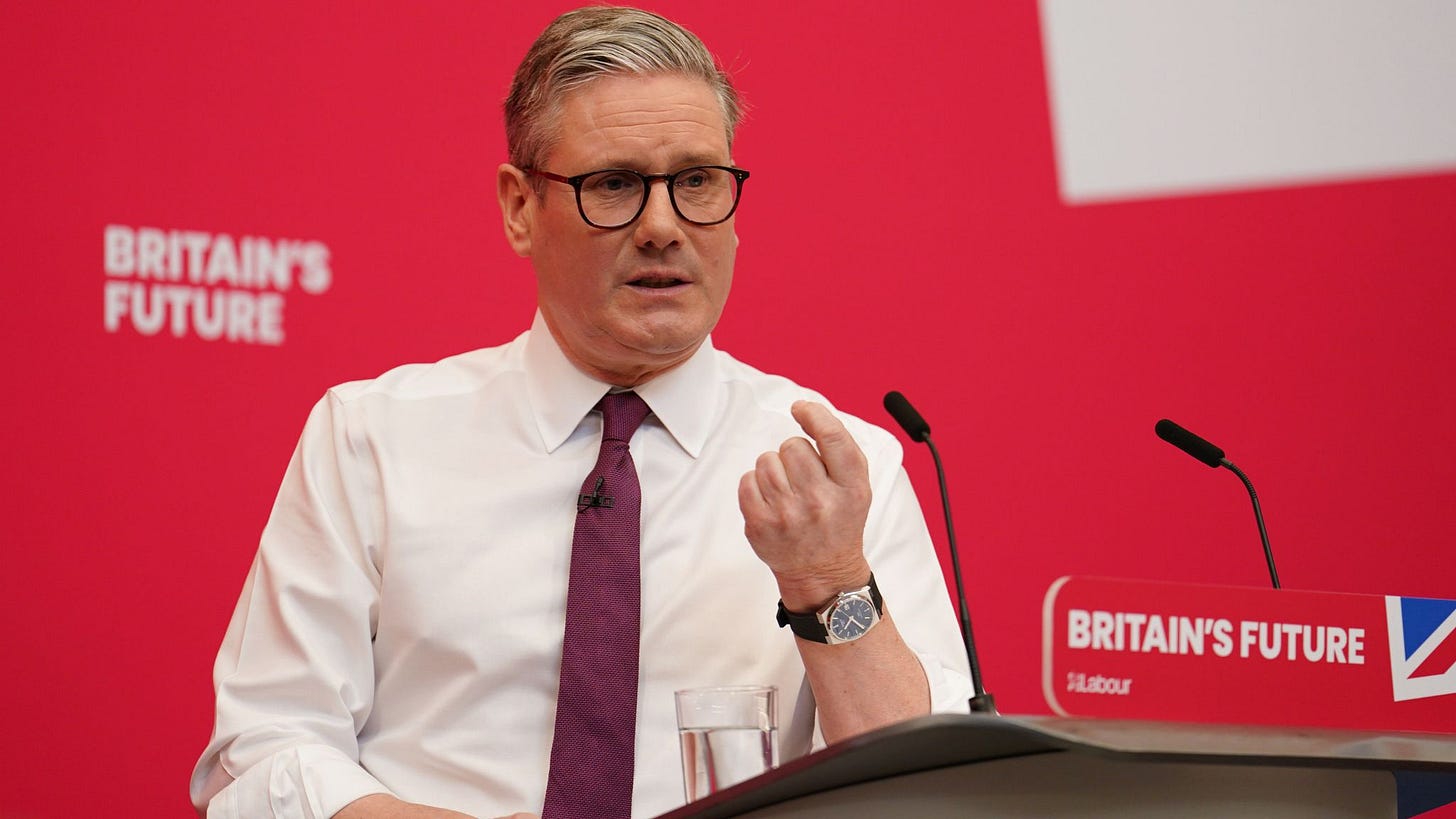One-Two Punch
The UK is diving off the energy cliff. Lamenting it might soon be illegal.
“To jaw-jaw is always better than to war-war.” – Winston Churchill
British Prime Minister Keir Starmer’s rigorous crackdown on internet speech in the aftermath of the most recent bout of riots in the country is causing alarm among free speech advocates globally. Despite receiving less than 35% of the popular vote, Starmer has wasted no time in pressing his newfound authority, vowing to reshape UK politics well beyond any plausibly earned mandate. The crackdown on social media posts is but one vector in this regard.
At issue is the continuous widening of the definition of illegal speech with each passing crisis of concern, as this article in Spiked magazine correctly frames:
“Certainly, incitement to violence, true threats and so on are crimes in every civilised society – even in America, where the First Amendment renders any censorship of speech and the press unconstitutional. But ‘incitement to hatred’ and ‘grossly offensive’ speech are different things entirely. One man’s hatred is another man’s passionately held moral conviction. Offence is always in the eye of the beholder. We all think we know hate or offence when we see it, but at the end of the day everyone will draw the line slightly differently …
The same goes for policing misinformation. Of course misinformation exists. The question is, who do you want to act as your Ministry of Truth? Big Tech? The state? Neither has a particularly encouraging track record.”
Examples abound. According to the BBC, a 40-year-old man was recently charged for social media posts that “were alleged to contain anti-Muslim and anti-establishment rhetoric.” The characterization of the latter as offensive has raised more than a few eyebrows, including ours (and now, probably yours). Warnings have been sent across British airwaves to avoid posting or retweeting anything that could be interpreted to cause harm, “regardless of their intent.”
One particularly concerning trend is the manifest effort to include so-called “climate denialism” under the umbrella of hate speech, exposing those with alternative views on energy policy to potential legal jeopardy. In a piece we wrote in March titled “Climate Newspeak,” we chronicled how the self-appointed internet watchdog Center for Countering Digital Hate (CCDH) was agitating to include opposition to wind and solar projects as “New Denial,” which they helpfully defined as “rhetoric seeking to undermine confidence in solutions to climate change.” At the time, the CCDH—led by founder and CEO Imran Ahmed, who was previously a political strategist for the Labour Party—was demanding censorship of a wide range of popular YouTube channels:
“The dozens of organizations that now stand accused of spreading ‘digital hate’ on the subject of renewable energy include a virtual who’s who of right-leaning think tanks such as the American Enterprise Institute, the Competitive Enterprise Institute, Heritage Action for America, the Hudson Institute, the Manhattan Institute, the National Center for Public Policy Research, the Cato Institute, the Fraser Institute, and the Heartland Institute. Also on CCDH’s naughty list are the popular podcast host Joe Rogan and, oddly enough, Bitcoin enthusiast Anthony Pompliano.”
Starmer’s speech crackdown and Britain’s growing populist opposition to its climate change policies are on track for a historic collision. Lost amongst the media’s focus on the riots and the government’s reaction to them is a cascade of radical energy policy changes underway that will have a far greater impact on the British economy and way of life. Ed Miliband, career politician and the newly appointed Secretary of State for Energy Security and Net Zero, seems to have observed Germany’s approach to energy and decided that its only flaw was temperance. Let’s explore the changes he has been swift to implement, and why his policies are all but certain to result in catastrophe—while it is still legal for us to do so (we think).



